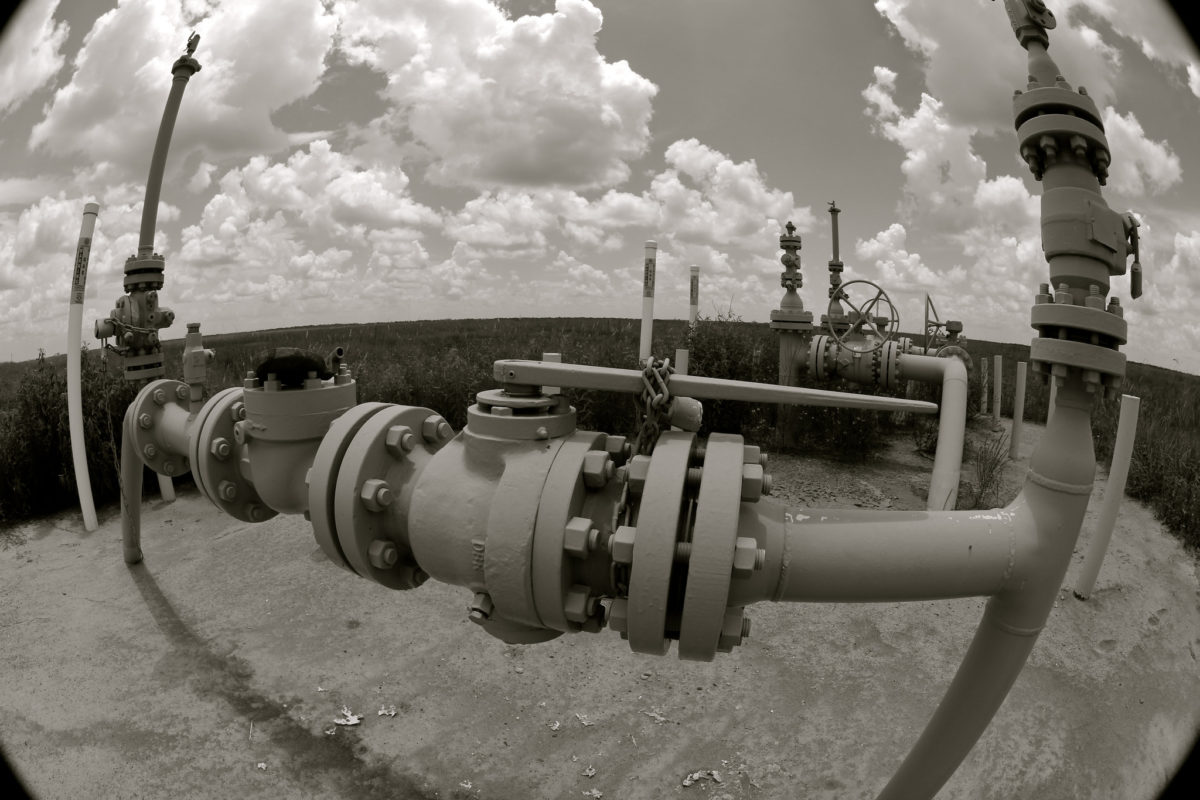The importance of energy storage in providing back-up grid power was demonstrated during an extensive blackout in the U.K. this month when 100 MW of battery capacity kicked in within 0.1 seconds to help keep the lights on.
The battery capacity, operated by flexible power infrastructure business Statera, provided “100% of our performance to mitigate the effects” of the power outage, managing director Tom Vernon told pv magazine.
Despite the tip-top performance of Statera’s utility scale battery capacity, however, Vernon said the ambition of a carbon-neutral U.K. by 2050 will prove impossible without extensive deployment of flexible gas back-up generation facilities. Others take the view, supported by numerous studies, that fossil fuel generation is not required at all in a 100% renewable energy system or to achieve a carbon neutral energy balance.
When a lightning strike was followed by two power stations tripping to take down an extensive portion of the U.K. grid in London and the South East of England for 15 minutes on August 9, “it brought into focus the need for resilience in the grid”, said Vernon.
Flexible gas
In addition to Statera’s storage capacity, the company’s flexible gas peaking plant came online rapidly, to help ease a blackout that affected as much as 10-15% of the national grid and left passengers stuck on trains for nine hours and critical infrastructure including hospitals suffering outages.
“We had a flexible gas project which we understand prevented around 100,000 homes in the area of Hull experiencing a blackout,” said Vernon, referring to the city in the northeast of England. “It’s a high efficiency gas generating unit that only comes on for a limited number of hours each year, but when they are used they are critical.”
Vernon told pv magazine battery storage alone will not be enough to guarantee security of supply as the penetration of renewables rises in the energy mix.
“Renewables are going to be leading the charge and batteries will balance the grid,” said the Statera MD. “But it won’t be possible to balance the grid without flexible gas back-up. Even if you oversize the amount of [renewables] generation you need considerably, you would still need a battery so huge it would be unfeasible. You can’t account for the days when, in the middle of winter, the wind doesn’t blow for a week. A battery that is load shifting for a month at a time is only doing three to four cycles per year so it would have to be unfeasibly large and very cheap, and we are a long, long way from that.”
Carbon emitting back-up
With nuclear unsuitable for providing anything but baseload due to the time and expense required to kick a reactor into gear, Vernon said fossil fuel gas offers the best route – even if counter-intuitively – to a carbon neutral future for the U.K.
“Under the [back-up power] system that operates at the moment,” said Vernon, “[U.K. electricity transmission network operator] National Grid needs big thermal power stations in reserve, spinning and emitting carbon but not generating electricity.” By contrast, he said, Statera’s flexible gas plants can be put into action within 2-5 minutes.
Citing a future energy scenario envisaged by National Grid, Vernon said broadly equal amounts of battery storage and flexible gas facilities would be needed to back up a renewable energy driven electric grid, adding: “We’re only moving toward a more electrified future.”
Energy white paper
The question now, in a nation still apparently transfixed by the interminable Brexit problem, is whether the new government of Boris Johnson will act quickly enough to secure the necessary infrastructure, and respond to what Vernon described as the “warning signal” and “wake-up call” of the blackout experienced this month.
“We are waiting for the energy white paper,” said the Statera boss. “We were due to receive something earlier in the summer but we are meeting with BEIS [the Department for Business, Energy and Industrial Strategy] in two weeks to discuss issues related to the white paper. It’s true that the government has not been working as quickly as we might expect with Brexit in the background – actually in the foreground a lot of the time.
“August 9 highlighted the investment case for flexible capacity. We are clear that more flexible capacity is needed to balance the system, maintain security of supply and reduce costs to the consumer.”
Now, all eyes will be on that white paper.
* This is a controversial subject. To read more coverage on gas, and in particular power to gas, visit: The what and when of P2G; Why the EU needs binding targets for renewables and decarbonised gas for a climate-neutral Europe and Medium and small power-to-gas conversion already viable.
This content is protected by copyright and may not be reused. If you want to cooperate with us and would like to reuse some of our content, please contact: editors@pv-magazine.com.




Why not use stored anhydrous ammonia fuel, produced with excess renewable power, to drive these gas peaker turbines? This could be done using existing technology & infrastructure, and would eliminate the CO2 produced by natural gas fuel. Read this: https://nh3fuelassociation.org/comparisons/
“Others take the view, supported by numerous studies, that fossil fuel generation is not required at all in a 100% renewable energy system or to achieve a carbon neutral energy balance.”
In all the studies I know of the difficulty of achieving higher RE penetrations ramps up as you go from 70 to 80 to 90 to 95%. There are long stretches of the year that can run on 100% RE but there are a few rough patches of the year where you simply don’t have enough RE to supply load. This is true over continental scales. Jenny Chase calls this the 52/7 problem.
We can still reach a 100% RE grid but we’ll need to build out specific resources for these few weeks a year. Mr. Vernon is right about batteries not being an appropriate resource to use to solve the 52/7 problem. Batteries are useful for hourly or daily balancing. They are completely inappropriate in applications where they’d only see 3 or 4 cycles a year.
Natural gas turbines or even reciprocating engines are the obvious type of resource to use to solve the 52/7 problem. I agree with Vernon that using fossil fuels makes sense – at least in the near term. Some may argue that we should use renewable fuels but our track record with biofuels has been incredibly destructive so far. If I had to pick between biofuels and natural gas I’d definitely pick gas.
Lots of energy can be saved with pumped hydro storage plants. Such sytems can prowide GW of power for long periods of time. No gas powered plants are needed. Alternate you could just produce hydrogen with exces renewable energy and store it, but this is a bit something technology has to improve a bit but it’s makable.
Once renewable energy generates a surplus, you simply start splitting water for the hydrogen and then use fuel cells for backup.
So, so wrong.
First off of those that are in the future, they will run on bio, waste, synfuels.
But it assumes utilities will be the supplier of power which will in 20 yrs, have a small fraction of the market in generation.
Future on demand generation, sucking up excess generation will be homes, buildings, etc using solar, wind, CHP/CSP, heat/cold storage along with battery, making money instead of paying it.
As these loads turn to generators utility demand drops radically.
For the other main storage will be EVs that suck up excess power and generate on demand power getting a check instead of a bill.
Econo101
My own analysis backs up the author stating there is a need for gas backup capacity. However there are two problems using gas backup capacity. First, gas backup usage keep us from achieving a 100% fossil fuel free grid. Secondly, these gas plants are likely to have long periods between need so the plants must be designed to be unmanned, and easy starting. They will be inherently simpler to operate and less efficient. We should strive to replace these gas plant backups with some sort of new safe nuclear power in the system that charges up energy storage and then those two together eliminates the need for gas backup capacity.
Methane is a GHG 84 times more powerful than CO2 for Climate warming. There are many type of storage, not only batteries. There are thermal storage, Kinetic storage with tower that lift Blocs, Flow battery with vanadium and /or organic electrolytes for long term storage , even mounths without capacity loss , unlike Li-Ion batteries. The storage problem will be a non problem in the future with new types of storage that will be cheaper and clean that running a fossil fuel power plants. There is a need of deploimemts of this new storage facilities.
Electrolysers to produce hydrogen could be the answer, we can continue using gas as backup but this gas comes from renewable energy and water.